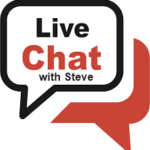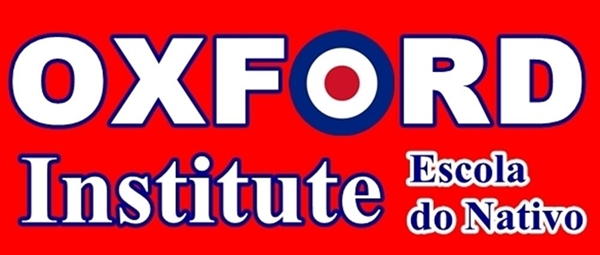Instruções:
Essas aulas de inglês são para alunos intermediários e avançados de inglês como segunda língua. Eles incluem “Ler”, “Ouvir” e “Escrever”. Basta seguir a lição respondendo às perguntas à medida que as encontra.
 Todas as vagas em negrito devem ser traduzidas para seu próprio idioma para ajudar na compreensão do novo vocabulário.
Todas as vagas em negrito devem ser traduzidas para seu próprio idioma para ajudar na compreensão do novo vocabulário.
Please LIKE & SUBSCRIBE my Youtube channel https://www.youtube.com/c/SteveBradeley/videos
Lesson format and purpose:
Each of these English lessons are based on a number of different subjects from politics to history to famous people or social issues. The philosophy of the lesson format is to introduce advanced second language English speakers to new vocabulary and to allow and aid students to have the necessary vocabulary in English to simply hold a conversation with others. As well as intruducing new vocabulary I will incorporate the new words into a text and a series of questions.
All text, questions and answers can be found by visiting this link. You can also download the pdf document.
DOWNLOAD HERE: THE COMMONWEALTH (advanced lesson)
Introduction:
Welcome to this advanced English lesson. This lesson includes the following components: 
- A number of questions to answer.
- An introductory text about out lesson subject.
- Vocabulary list of new words.
- Then a reading text.
- Then a set of further questions regarding the text.
- And finally, a research question where you will be asked to Google search the answer in English.
Video Lesson One
Area of study: Politics
English level: Advanced
Subject: The Commonwealth of Nations
The Commonwealth of Nations
Initial questions
- Do you know what The Commonwealth of Nations is?
- Is your country a member of The Commonwealth of Nations?
- Do you know how many countries are members of the organisation?
Let’s answer these three questions and many more by looking at the new vocabulary and reading through the text together.
Introduction:
So what is The Commonwealth of Nations? The Commonwealth of Nations is a group of 56 countries that are former members of the British Empire. The difference between The Commonwealth and The British Empire is that The Commonwealth is purely a voluntary organisation. That is, that members join because they want to and are free to leave at any time. However, there are a number of criteria that have to be met before a country is admitted into the organisation. This is because the Commonwealth has a number of standards and principles they uphold.
List of member:
56 Independent countries make up the Commonwealth in Africa, Asia, the Americas, Europe and the Pacific.

Text Vocabulary: There are fifteen new words to remember.
- Vast
- Former
- Voluntary
- Island nations
- Shared goals
- Roots
- Gained
- Dominions
- Allegiance
- The head
- Resemblance
- Entirely
- Conception
- Partnership
- Cooperation
So lets put these new words into context. Follow the text on screen while listening the the teacher reading.
Main Text:
The Commonwealth of Nations, simply referred to as the Commonwealth, is a political association of 56 member states, the vast majority of which are former territories of the British Empire. Thirty-two of the world’s 42 small states are Commonwealth members.
The Commonwealth is a voluntary association of 56 independent and equal countries.
It is home to 2.5 billion people, and includes both advanced economies and developing countries. 32 of our members are small states, including many island nations.
Our member governments have agreed to shared goals like development, democracy and peace. Our values and principles are expressed in the Commonwealth Charter.
The Commonwealth’s roots go back to the British Empire. But today any country can join the modern Commonwealth. The last two countries to join the Commonwealth were Gabon and Togo in 2022.
The Commonwealth is one of the world’s oldest political associations of states. Its roots go back to the British Empire, when countries around the world were ruled by Britain.
The early Commonwealth
Over time different countries of the British Empire gained different levels of freedom from Britain. Semi-independent countries were called Dominions. Leaders of the Dominions attended conferences with Britain from 1887.
The 1926 Imperial Conference was attended by the leaders of Australia, Canada, India, the Irish Free State, Newfoundland, New Zealand and South Africa.
At the 1926 conference Britain and the Dominions agreed that they were all equal members of a community within the British Empire. They all owed allegiance to the British king or queen, but the United Kingdom did not rule over them. This community was called the British Commonwealth of Nations or just the Commonwealth.
Birth of the modern Commonwealth
The Dominions and other territories of the British Empire gradually became fully independent of the United Kingdom.
India became independent in 1947. India wanted to become a republic which didn’t owe allegiance to the British king or queen, but it also wanted to stay a member of the Commonwealth.
At a Commonwealth Prime Ministers meeting in London in 1949, the London Declaration said that republics and other countries could be part of the Commonwealth. The modern Commonwealth of Nations was born.
King George VI was the first Head of the Commonwealth, and Queen Elizabeth II became Head when he died. But the British king or queen is not automatically Head of the Commonwealth. Commonwealth member countries choose who becomes Head of the Commonwealth.
Speaking on this new association in 1953 Her Majesty the Queen said: “Thus formed, the Commonwealth bears no resemblance to the Empires of the past. It is an entirely new conception, built on the highest qualities of the spirit of man: friendship, loyalty and the desire for freedom and peace. To that new conception of an equal partnership of nations and races I shall give myself heart and soul every day of my life.”
The modern Commonwealth
Since 1949 independent countries from Africa, the Americas, Asia, Europe and the Pacific have joined the Commonwealth. Membership today is based on free and equal voluntary co-operation.
The last four countries to join the Commonwealth – Rwanda, Mozambique, Gabon and Togo – have no historical ties to the British Empire.
Questions:
True or False Questions?
Answer these three questions with a TRUE or FALSE answer.
-
-
-
- The commonwealth of Nations member states have a legal obligation to each other?
- King Charles III is the head of The Commonwealth of Nations.
- Approximately half of the world’s population is a member of The Commonwealth.
-
-
Vocabulary Review Questions
Read the sentence and insert the correct word. You may need to change the word form.
-
-
-
- What you said to me this morning about what the Prime Minister said during the 2022 election wasn’t _________________ true. Resemblance, Roots, Gained, Entirely.
- I saw your brother this morning on the bus. When I saw him I realised how much he _____________ you. Saw, Resemblance, Former, Volunteer.
- My sister and I are going to start a new business. I don’t normally like _____________ but this time I feel I can trust my sister. Shared goals, Dominions, Agreements, Partnerships.
-
-
You can find the answers below the video. THE COMMONWEALTH (advanced lesson)
Answers:
True or False Questions?
Answer these three questions with a TRUE or FALSE answer.
-
-
-
- The commonwealth of Nations member states have a legal obligation to each other?
- King Charles III is the head of The Commonwealth of Nations. TRUE
- Approximately half of the world’s population is a member of The Commonwealth. FALSE
-
-
Vocabulary Review Questions
Read the sentence and insert the correct word. You may need to change the word form.
-
-
-
- What you said to me this morning about what the Prime Minister said during the 2022 election wasn’t ________entirely_______ true. Resemblance, Roots, Gained, Entirely.
- I saw your brother this morning on the bus. When I saw him I realised how much he _______resembled_____ you. Saw, Resemblance, Former, Volunteer.
- My sister and I are going to start a new business. I don’t normally like ______partnerships_____ but this time I feel I can trust my sister. Shared goals, Dominions, Agreements, Partnerships.
-
-
